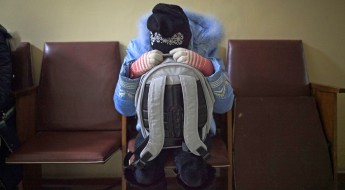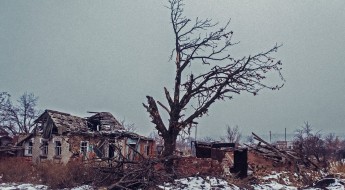Survival: A course on safety and security for media professionals
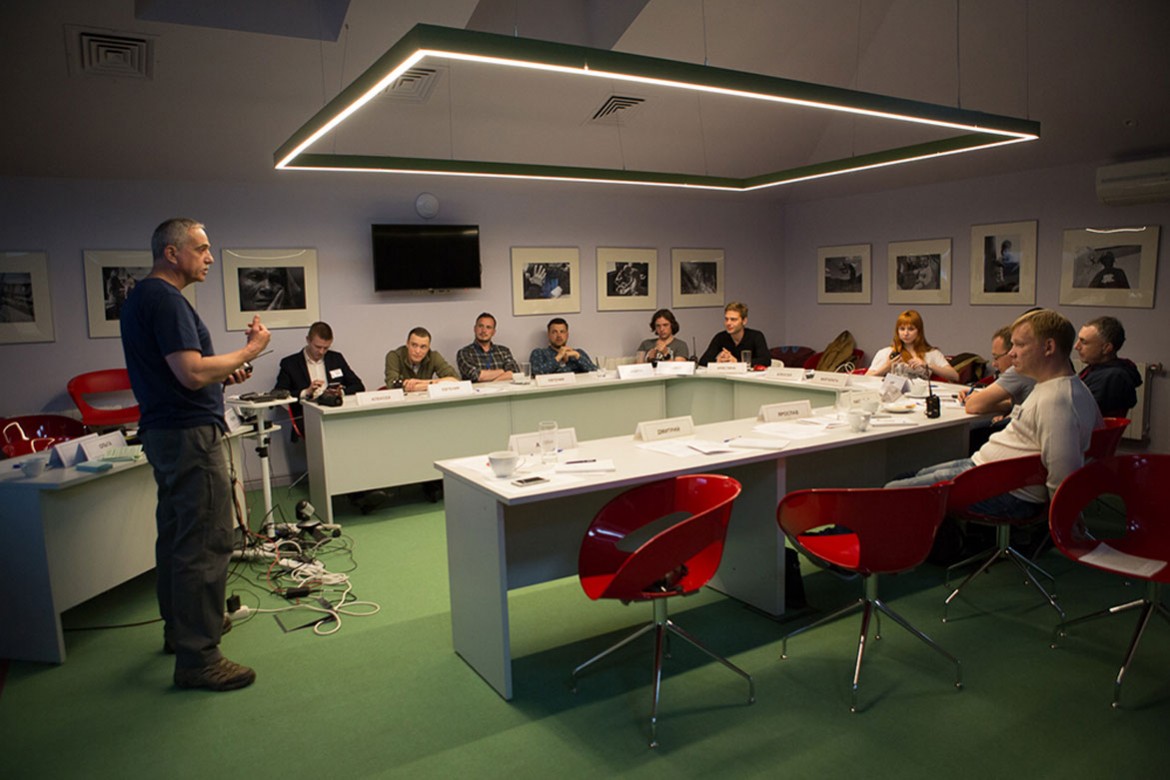 As for every learning process, theory comes first. Trainers share their knowledge and experience.CC BY-NC-ND / ICRC / Galina Balzamova
As for every learning process, theory comes first. Trainers share their knowledge and experience.CC BY-NC-ND / ICRC / Galina Balzamova Theoretical knowledge put into practice right away. This will be useful during the field exercise.RHM/Aleksandra Kharadze
Theoretical knowledge put into practice right away. This will be useful during the field exercise.RHM/Aleksandra Kharadze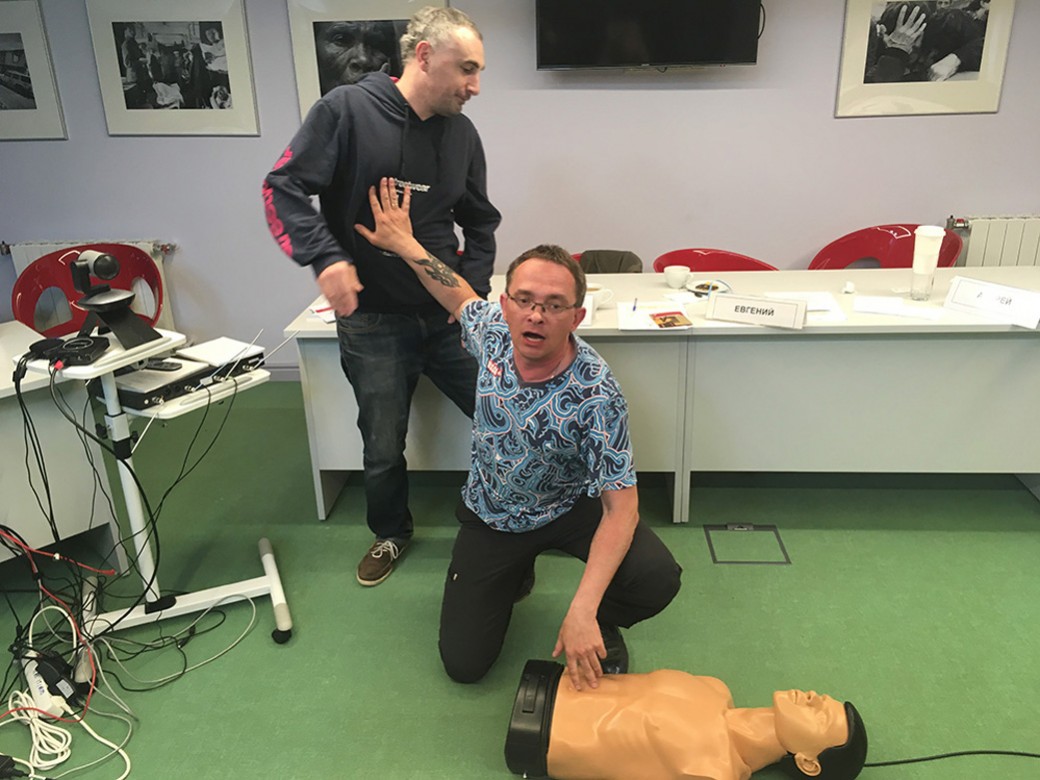 It is important to know how to provide first aid. It is also important to stop someone who doesn’t know how to do it and can harm the victim.CC BY-NC-ND / ICRC / Galina Balzamova
It is important to know how to provide first aid. It is also important to stop someone who doesn’t know how to do it and can harm the victim.CC BY-NC-ND / ICRC / Galina Balzamova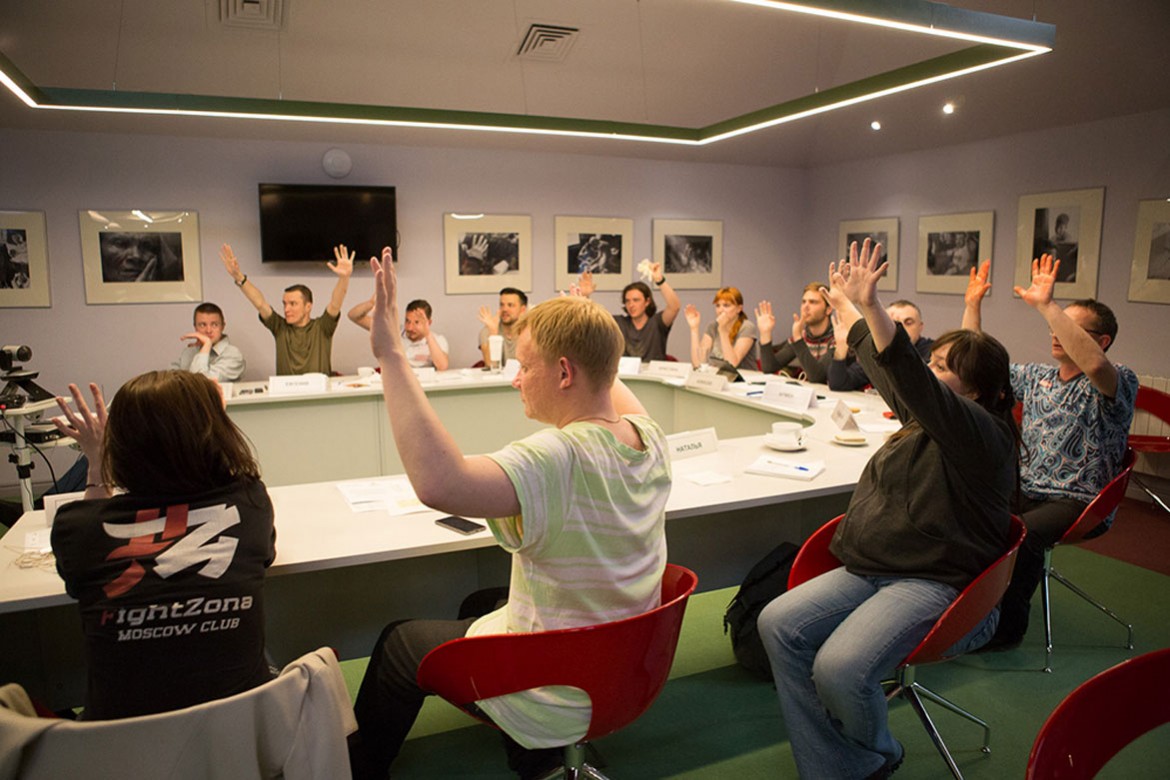 First rule of helping – safety. This concerns the victim and one’s own safety. Before you start providing first aid, you need to wear gloves (or something which replaces them). Some of the participants forgot about it. While we are still learning it is not that dangerous.МККК/Галина Бальзамова
First rule of helping – safety. This concerns the victim and one’s own safety. Before you start providing first aid, you need to wear gloves (or something which replaces them). Some of the participants forgot about it. While we are still learning it is not that dangerous.МККК/Галина Бальзамова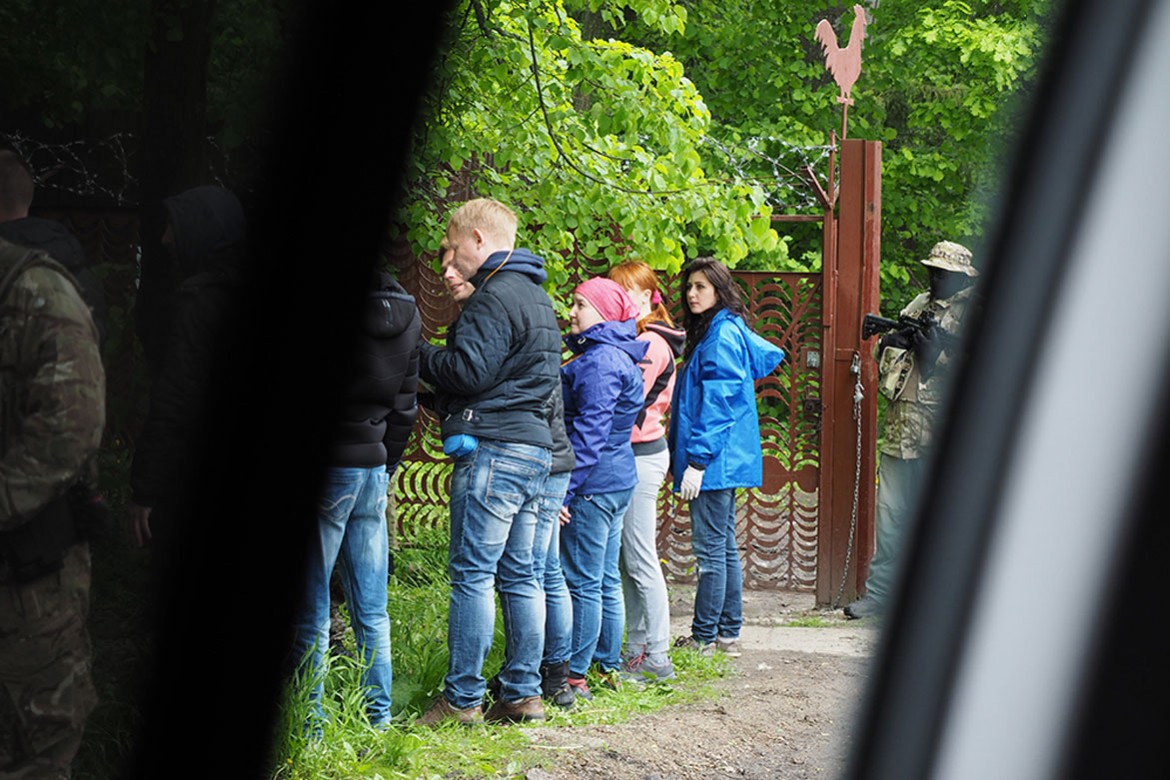 Practical part of the course consists of different tasks. One of them is to pass a check-point. Will the participants be able to explain who they are and why they need to go to the other side?CC BY-NC-ND / ICRC / Galina Balzamova
Practical part of the course consists of different tasks. One of them is to pass a check-point. Will the participants be able to explain who they are and why they need to go to the other side?CC BY-NC-ND / ICRC / Galina Balzamova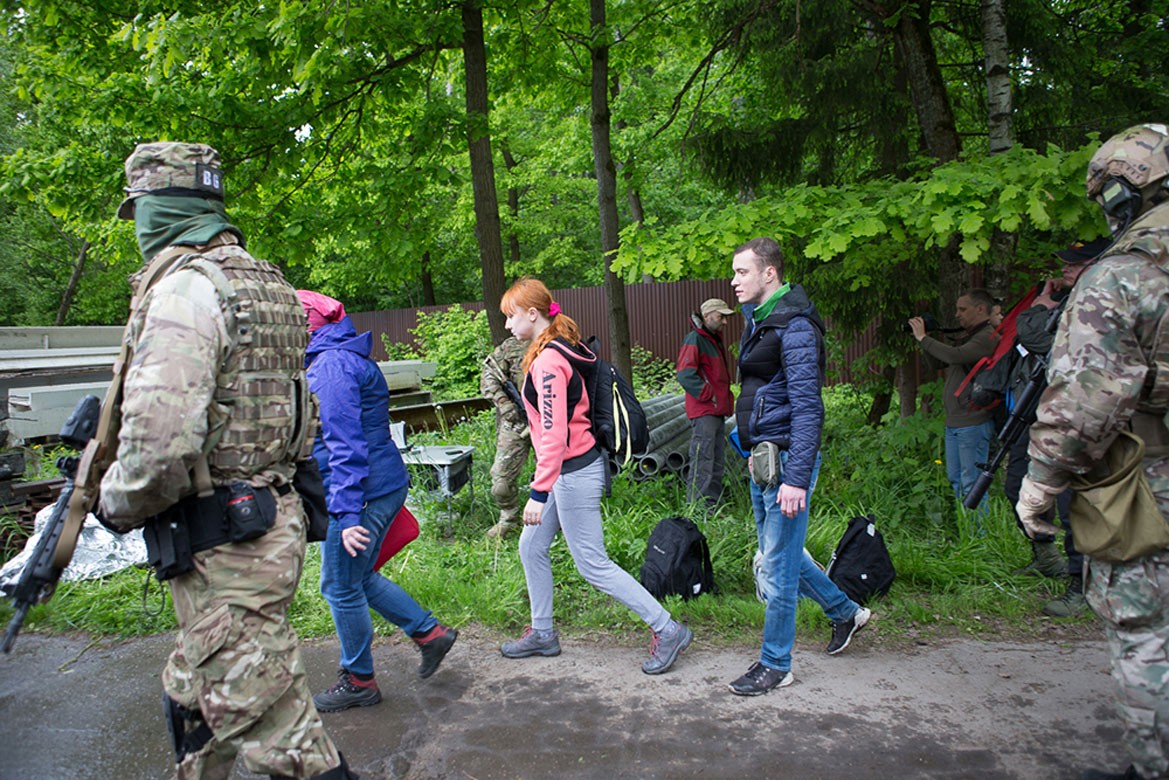 How to communicate with representatives of the authorities in the correct manner while in dangerous places? What to say and what not to say? Participants learning in practical sessions.RHM/Aleksandra Kharadze
How to communicate with representatives of the authorities in the correct manner while in dangerous places? What to say and what not to say? Participants learning in practical sessions.RHM/Aleksandra Kharadze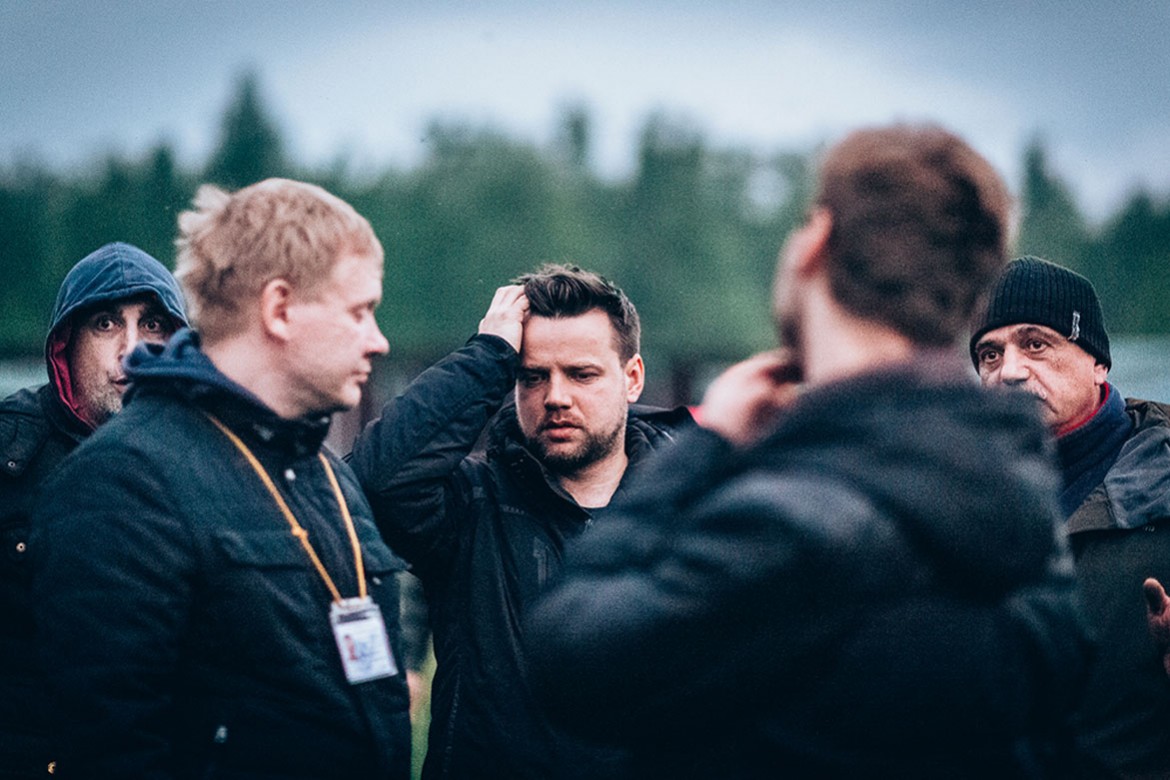 While some of the scenarios were not easy, they helped in preparing for the real world where this knowledge will be priceless.RHM/Aleksandra Kharadze
While some of the scenarios were not easy, they helped in preparing for the real world where this knowledge will be priceless.RHM/Aleksandra Kharadze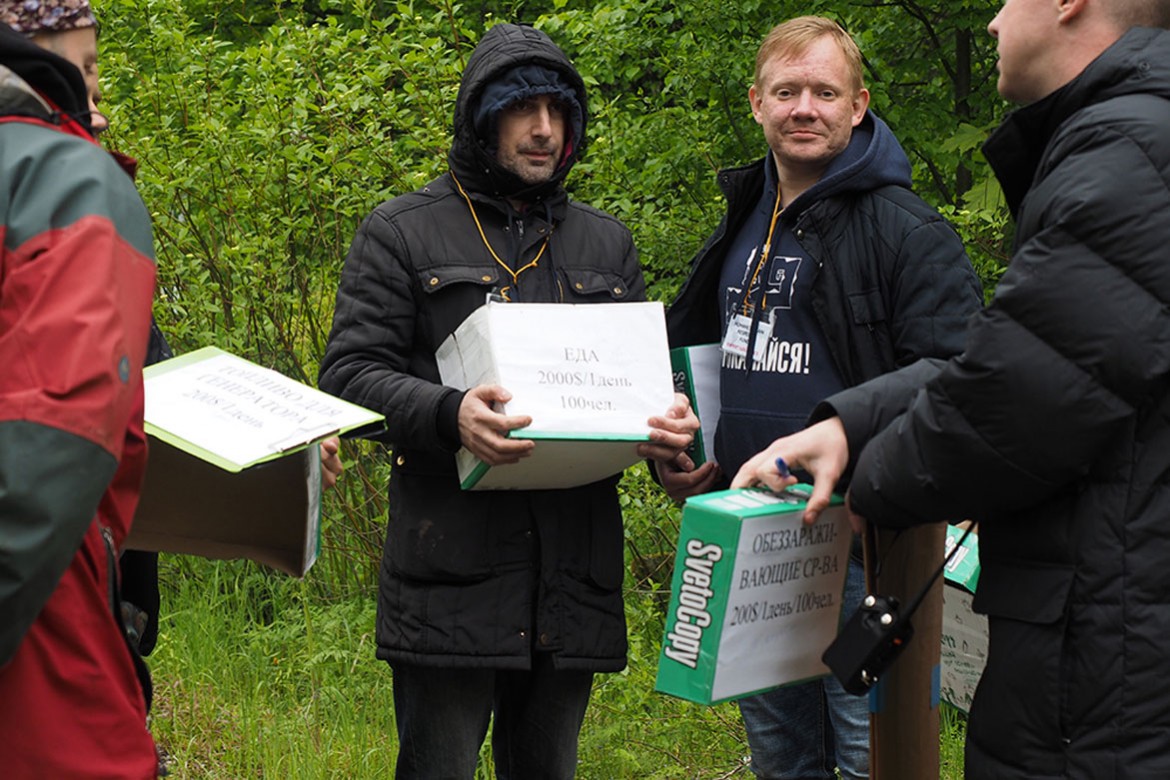 In emergency zones of armed conflicts, journalists work alongside the suffering population and humanitarian organizations, which are trying to assist the people. Our participants understood, based on their own experiences, how and why to talk to them both.CC BY-NC-ND / ICRC / Galina Balzamova
In emergency zones of armed conflicts, journalists work alongside the suffering population and humanitarian organizations, which are trying to assist the people. Our participants understood, based on their own experiences, how and why to talk to them both.CC BY-NC-ND / ICRC / Galina Balzamova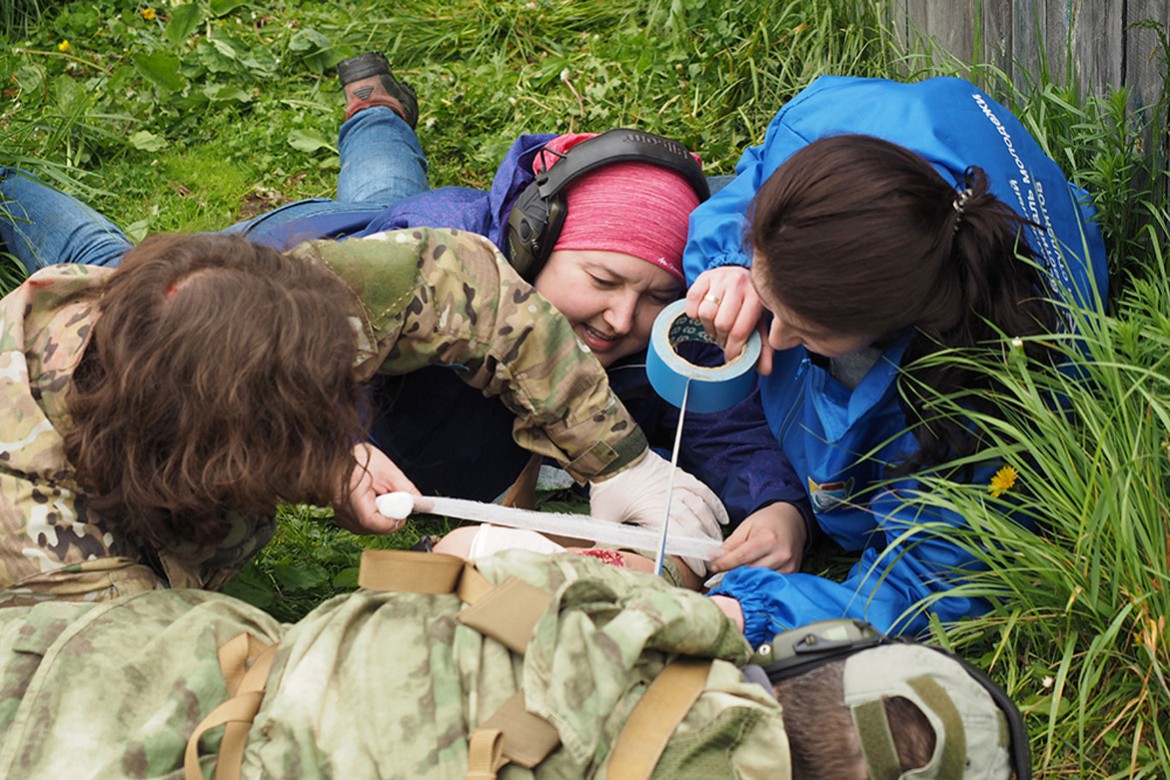 Providing first aid in field conditions is far from doing it in classrooms, but the participants managed very well.CC BY-NC-ND / ICRC / Galina Balzamova
Providing first aid in field conditions is far from doing it in classrooms, but the participants managed very well.CC BY-NC-ND / ICRC / Galina Balzamova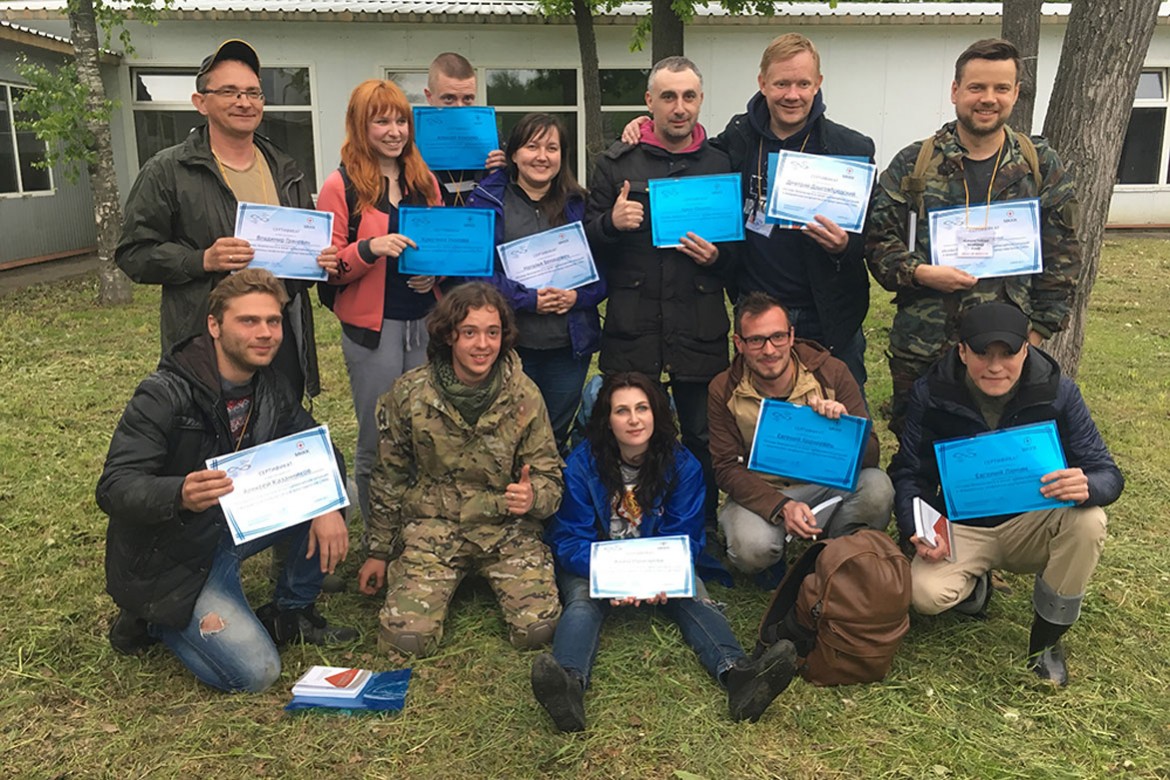 The participants receive certificates after the course was completed successfully.CC BY-NC-ND / ICRC / Galina Balzamova
The participants receive certificates after the course was completed successfully.CC BY-NC-ND / ICRC / Galina Balzamova
In June 2017 the Russian Humanitarian Mission and the ICRC organized a course for media professionals on safe behavior during emergencies and armed conflicts. Twelve journalists and professionals in the area from Russia and Belarus took part in the course. The participants were taught to provide first aid, determine coordinates using a map, use portable radio transmitters and talk to people in stress, among other things.

